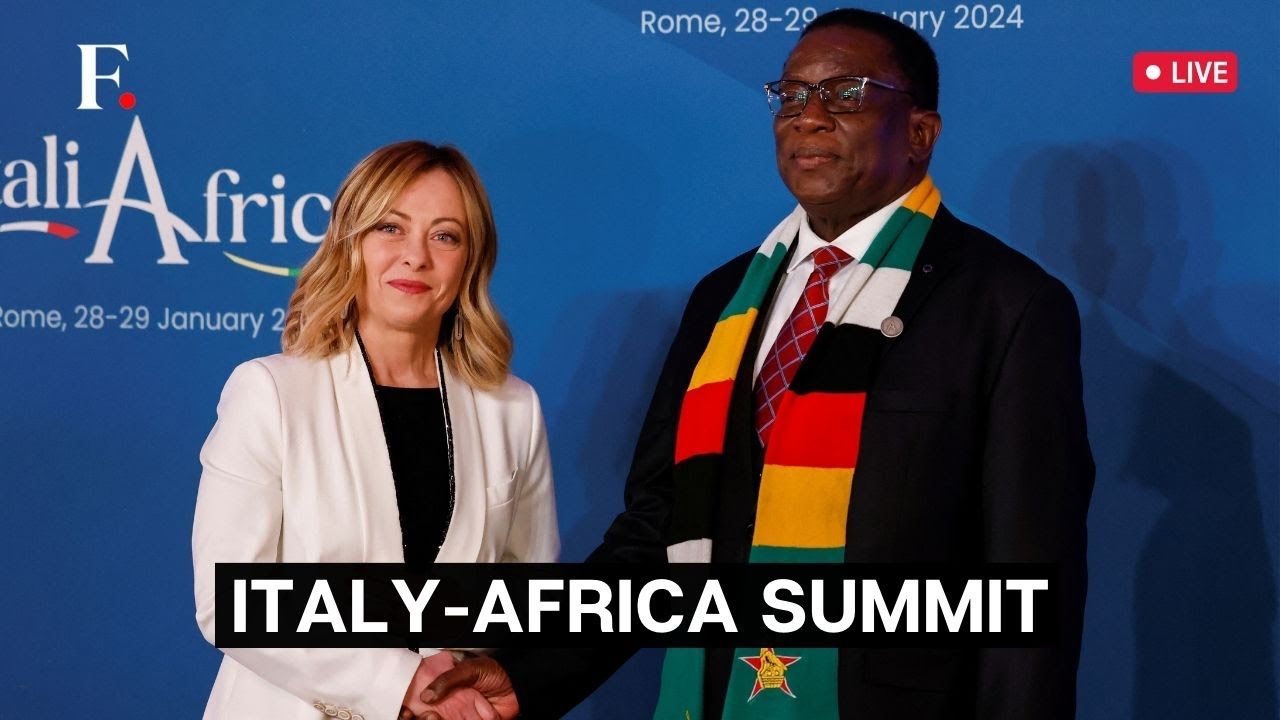Singapore PM Wong On India Trade Ties Amid Trump Tariffs: ‘We’re The Largest…’ | Exclusive Interview
Summary
TLDRPrime Minister Lawrence Wong of Singapore discusses his country's evolving relationship with India, emphasizing their growing bilateral cooperation in areas like semiconductors, skills development, green energy, and digital payment systems. He highlights the importance of their Comprehensive Strategic Partnership (CSP) and strategic collaborations across industries, despite global geopolitical uncertainties. Wong also stresses the need for continued dialogue between global superpowers, underscoring the stability and resilience that a strong India-Singapore partnership offers in a rapidly changing world.
Takeaways
- 😀 The India-Singapore Ministerial Round Table (ISMR) has made significant progress, focusing on enhancing bilateral cooperation through strategic discussions and business engagement.
- 😀 Prime Minister Lawrence Wong emphasizes the importance of the Comprehensive Strategic Partnership (CSP) between India and Singapore, with a roadmap for clearer cooperation in key areas.
- 😀 Economic cooperation between India and Singapore is expanding, with particular emphasis on semiconductors, industrial parks, and skills development.
- 😀 Singapore is committed to supporting India's efforts to build a semiconductor hub by facilitating collaboration in raw materials, equipment, and skills training.
- 😀 Singapore views India as a key player in diversifying global semiconductor supply chains and sees opportunities for mutual growth in the sector.
- 😀 Prime Minister Wong highlights the importance of Singapore's investment in India, underscoring long-term confidence despite global uncertainties and short-term volatility.
- 😀 Singapore sees India’s role in green energy as critical, with potential collaboration on renewable energy, low-carbon hydrogen, and carbon capture technologies.
- 😀 Both countries are exploring deeper cooperation in the digital economy, particularly through digital payment systems like the UPI-PayNow linkage and potential cross-border data exchange.
- 😀 Singapore is keen to collaborate with India on food security, leveraging India’s agricultural output to diversify Singapore's food imports and ensure a steady supply.
- 😀 Geopolitically, Prime Minister Wong expresses concern over the global uncertainties created by U.S.-China and U.S.-India tensions, stressing the need for dialogue and a rules-based international framework to manage these challenges.
Q & A
What was the purpose behind establishing the India-Singapore Ministerial Roundtable (ISMR)?
-The ISMR was established to inject new energy into the bilateral relationship between India and Singapore. It aims to enhance cooperation beyond individual ministries, focusing on strategic collaboration across various sectors, and also brings business leaders together to strengthen economic ties.
How does Prime Minister Lawrence Wong assess the progress of the ISMR since its inception?
-Prime Minister Wong highlights that the ISMR has made significant progress, with both countries deepening cooperation across several areas. He emphasized that the ISMR has gone beyond discussions to include concrete outcomes, such as the upgrade to a Comprehensive Strategic Partnership in 2024.
What are the key areas of focus for the India-Singapore Comprehensive Strategic Partnership (CSP)?
-The CSP focuses on economic cooperation, including areas like semiconductors, skills development, connectivity, and space exploration. A major focus is creating a roadmap for advancing these areas and institutionalizing bilateral mechanisms like the ISMR.
Why is Singapore interested in helping India develop a semiconductor hub?
-Singapore sees semiconductor development as crucial to the digital economy, offering a more diversified and resilient supply chain. With global companies in Singapore involved in the semiconductor industry, they see India as a key partner for manufacturing, skills development, and research collaboration in this critical sector.
How does Prime Minister Wong view Singapore's investments in India, especially considering the geopolitical tensions?
-Prime Minister Wong acknowledges that investments are inherently risky but emphasizes that Singapore has long-term confidence in India's growth prospects due to its young population, dynamic tech sector, and government reforms. He mentions that Singapore has been the largest investor in India for seven consecutive years.
What are Singapore’s strategies for addressing green energy and decarbonization, and how might India play a role?
-Singapore is working on a mix of solutions for decarbonization, including importing green energy, exploring carbon capture, and potentially considering small modular reactors (SMRs). India is seen as a potential partner for energy solutions, and both countries are exploring collaboration on green energy, food security, and sustainability.
How important is digital collaboration between India and Singapore, and what are the next steps?
-Digital collaboration is vital, with the UPI-PayNow linkage serving as a successful example. The next steps include expanding financial institution linkages, exploring digital documentation for trade, and developing a cross-border data corridor to foster greater interoperability and collaboration in AI, fintech, and digital infrastructure.
What is the role of AI and digital infrastructure in future India-Singapore collaboration?
-AI and digital infrastructure are seen as key areas for collaboration, with both countries exploring partnerships in AI research, responsible usage, and industry-specific applications. A focus is also on creating the necessary data infrastructure to support these technologies.
What are Singapore’s views on the review of the ASEAN-India Trade in Goods Agreement (ATIGA)?
-Singapore supports the ongoing review of the ATIGA and advocates for flexibility from officials to achieve mutually beneficial outcomes. Singapore believes that the ASEAN-India relationship should expand beyond trade to include cooperation in services, connectivity, and green energy.
How does Prime Minister Wong assess the shifting geopolitical dynamics, particularly with the US-China and US-India relationships?
-Prime Minister Wong stresses the complexity of the US-China relationship, highlighting its intense competition but emphasizing the importance of dialogue. He also expresses hope for continued engagement between the US and India. In this context, he sees the India-Singapore relationship as crucial, offering stability and strategic partnership in an uncertain global landscape.
Outlines

此内容仅限付费用户访问。 请升级后访问。
立即升级Mindmap

此内容仅限付费用户访问。 请升级后访问。
立即升级Keywords

此内容仅限付费用户访问。 请升级后访问。
立即升级Highlights

此内容仅限付费用户访问。 请升级后访问。
立即升级Transcripts

此内容仅限付费用户访问。 请升级后访问。
立即升级浏览更多相关视频

ASEAN will remain cornerstone of Singapore’s foreign policy: PM Lawrence Wong

PBBM, nakipagpulong sa Presidente at Prime Minister ng Singapore

How Singapore Got So Crazy Rich

"Tremendous respect..." Russian President Vladimir Putin's high praise for PM Modi's ideas

Indonesia-India Bahas Kerja Sama Kesehatan dan Perdagangan di KTT G20

Italy-Africa Summit LIVE: Italian Government Hosts Summit with African Leaders
5.0 / 5 (0 votes)
